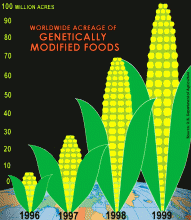Mom's pesticide exposure raises risk of infant leukemia
A mother's exposure to pesticides during pregnancy may be linked to rare types of leukemias that are diagnosed in children younger than 2, according to a study from Brazil. The children whose mothers were exposed at home or at work were two to seven times more likely to have one of the two cancers studied than those whose mothers reported no pesticide exposure. Infants younger than 11 months old were up to seven times more likely to have leukemia if their mothers used the insecticide permethrin. The results suggest that women of reproductive age should minimize their pesticide exposure before and during pregnancy and while nursing. This study is important because it focused on children younger than 2 years old and included both work and home exposures. The short time needed for cancers to develop in the infants suggests pre-birth exposures are important for the leukemias studied, the authors note. The findings support previous studies that indicate maternal pesticide exposure may play a role in childhood leukemia. Prenatal pesticide exposure has been linked to leukemia in older children. Few of these studies have looked at infants and toddlers or considered household pesticide use during the prenatal period. Also, most of the studies focused on occupational exposures.










